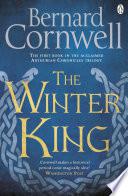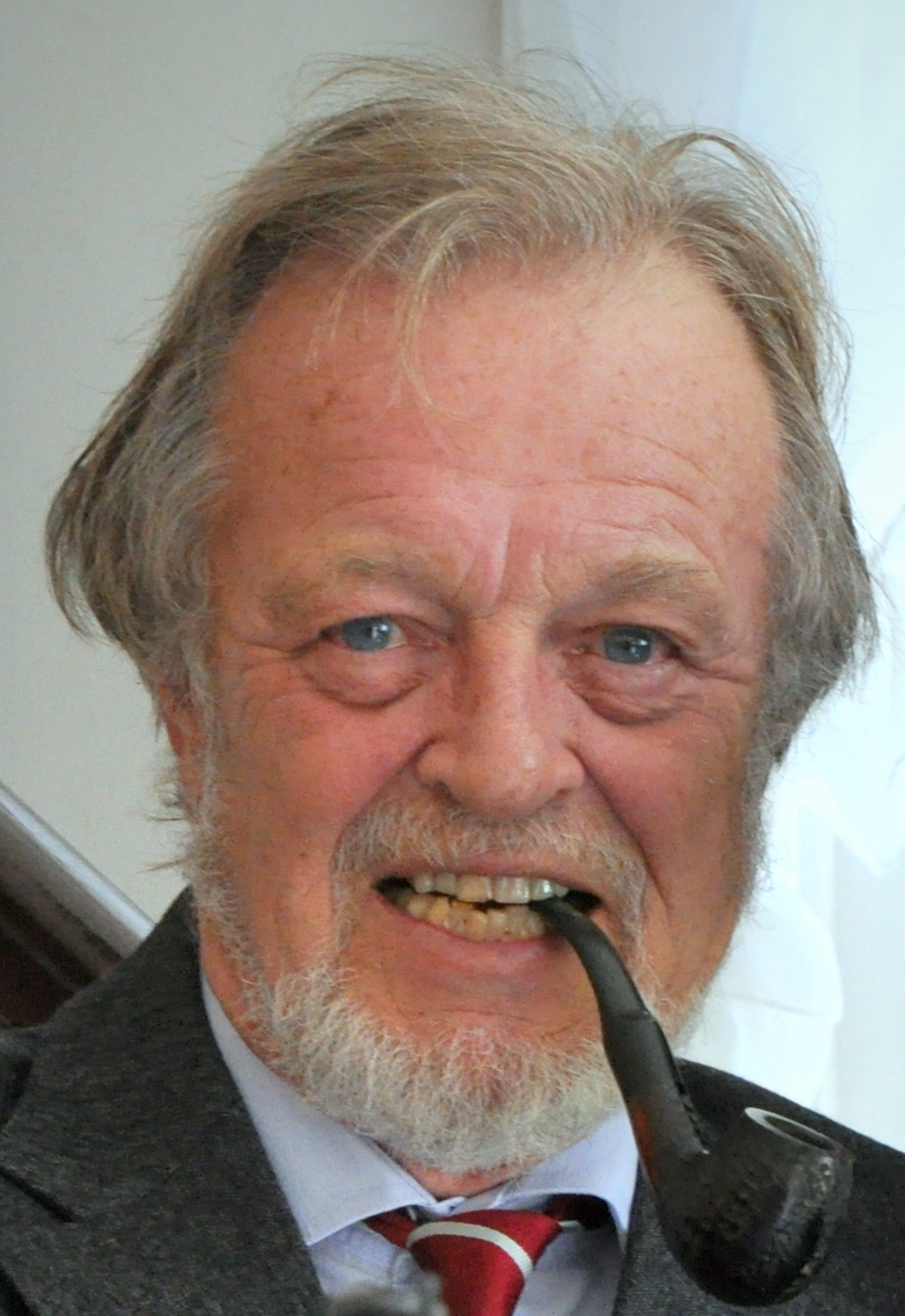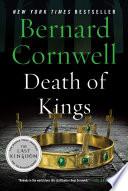Works

The Winter King
Bernard Cornwell
Warriors of the Storm
Bernard Cornwell
The Pale Horseman
Bernard CornwellFamous Bernard Cornwell Quotes
“Life is simple," I said. "Ale, women, sword, and reputation. Nothing else matters.”
Source: The Pale Horseman
Bernard Cornwell Quotes about men
Narrator, describing the effect of a successful British cavalry charge, p. 249
Sharpe (Novel Series), Sharpe's Sword (1983)
Lieutenant Colonel Thomas Leroy, p. 265
Sharpe (Novel Series), Sharpe's Honor (1985)
Sergeant Anthony Pohlmann, p. 271
Sharpe (Novel Series), Sharpe's Triumph (1997)
Lieutenant Richard Sharpe, p. 226
Sharpe (Novel Series), Sharpe's Havoc (2003)
Bernard Cornwell Quotes about combat
Captain Fernando Galiana and Captain Richard Sharpe, p. 202
Sharpe (Novel Series), Sharpe's Fury (2006)
Colonel Michel Dubreton (French Army) and Major Richard Sharpe, p. 80
Sharpe (Novel Series), Sharpe's Enemy (1984)
Narrator, p. 118
Sharpe (Novel Series), Sharpe's Enemy (1984)
Captain Richard Sharpe, p. 110
Sharpe (Novel Series), Sharpe's Battle (1995)
Lieutenant Richard Sharpe, p. 136
Sharpe (Novel Series), Sharpe's Prey (2001)
Captain Peter d'Alembord, p. 65
Sharpe (Novel Series), Sharpe's Honor (1985)
Bernard Cornwell: Trending quotes
“Defeat the enemy's infantry and the cavalry and gunners had nowhere to hide.”
Sergeant Richard Sharpe, p. 233
Sharpe (Novel Series), Sharpe's Triumph (1997)
Context: "Now we'll see how their infantry fight," Wellesley said savagely to Campbell, and Sharpe understood that this was the real testing point, for infantry was everything. The infantry was despised for it did not have the cavalry's glamour, nor the killing capacity of the gunners, but it was still the infantry that won battles. Defeat the enemy's infantry and the cavalry and gunners had nowhere to hide.
Narrator, p. 317
Sharpe (Novel Series), Sharpe's Fury (2006)
Context: They were the despised of England, Ireland, Scotland, and Wales. They were drunks and thieves, the scourings of gutters and jails. They wore the red coat because no one else wanted them, or because they were so desperate that they had no choice. They were the scum of Britain, but they could fight. They had always fought, but in the army, they were told how to fight with discipline. They discovered sergeants and officers who valued them. They punished them too, of course, and swore at them, and cursed them, and whipped their backs bloody, and cursed them again, but valued them. They even loved them, and officers worth five thousand pounds a year were fighting alongside them now. The redcoats were doing what they did best, what they were paid a shilling a day less stoppages to do: they were killing.
“They had pride. And they had the precious ability to fire platoon volleys.”
Sharpe (Novel Series), Sharpe's Escape (2003)
Context: They were thieves and murderers and fools and rapists and drunkards. Not one had joined for love of country, and certainly not for love of their King [... ] They were paid pitifully, fined for every item they lost, and the few pennies they managed to keep they usually gambled away. They were feckless rogues, as violent as hounds and as coarse as swine, but they had two things. They had pride. And they had the precious ability to fire platoon volleys. They could fire those half company volleys faster than any other army in the world. Stand in front of these recoats and the balls came thick as hail. It was death to be in their way and seven French battlions were now in death's forecourt and the South Essex was tearing them to ribbons.
Narrator, p. 101
Bernard Cornwell Quotes
“It was death to be in their way and seven French battlions were now in death's forecourt”
Narrator, p. 101
Sharpe (Novel Series), Sharpe's Escape (2003)
Context: They were thieves and murderers and fools and rapists and drunkards. Not one had joined for love of country, and certainly not for love of their King [... ] They were paid pitifully, fined for every item they lost, and the few pennies they managed to keep they usually gambled away. They were feckless rogues, as violent as hounds and as coarse as swine, but they had two things. They had pride. And they had the precious ability to fire platoon volleys. They could fire those half company volleys faster than any other army in the world. Stand in front of these recoats and the balls came thick as hail. It was death to be in their way and seven French battlions were now in death's forecourt and the South Essex was tearing them to ribbons.
“How can you expect obedience from the men when officers are corrupt?”
General Arthur Wellesley, p. 175
Sharpe (Novel Series), Sharpe's Prey (2001)
Context: My God, I will not abide plundering, especially by officers. How can you expect obedience from the men when officers are corrupt?
Captain Richard Sharpe, p. 300
Sharpe (Novel Series), Sharpe's Fury (2006)
Context: The real noise was of musketry, the pounding cough of volley fire, the relentless noise, and if he listened hard he could hear the balls striking on muskets and pounding into flesh. He could also hear the cries of the wounded and the screams of officers' horses put down by the balls. And he was amazed, as he always was, by the courage of the French. They were being struck hard, yet they stayed. They stayed behind a straggling heap of dead men, they edged aside to let the wounded crawl behind, they reloaded and fired, and all the time the volleys kept coming.
“Once a thief, always a thief, only now I steal from the enemy.”
Sharpe (Novel Series), Sharpe's Escape (2003)
Context: Until two days ago,' she went on suddenly, 'I thought that my life depended on other people. On employers. Now I think it depends on me. You taught me that. But I still need money.'
'Money's easy,' said Sharpe dismissively.
'That is not the conventional wisdom,' Sarah said drily.
'Steal the stuff,' Sharpe said.
'You were really a thief?'
'Still am. Once a thief, always a thief, only now I steal from the enemy. And some day I'll have enough to stop me from doing it and then I'll have to stop others from thieving from me.'
'You have a simple view of life.'
'You're born, you survive, you die,' Sharpe said. 'What's hard about that?
“A soldier's job was to kill. A rifle killed.”
Major Richard Sharpe, p. 55
Sharpe (Novel Series), Sharpe's Enemy (1984)
Context: He was a Major now, the ranks long in his past, yet he still carried the rifle. He had always carried a long-arm into battle; a musket when he was a private, a rifle now he was an officer. He saw no reason not to carry a gun. A soldier's job was to kill. A rifle killed.
“All feared the artillery, coughing its death in fan-like swathes.”
Narrator, p. 63
Sharpe (Novel Series), Sharpe's Sword (1983)
Context: Some feared the cavalry and in their minds they rehearsed the thunder of a thousand hooves, the dust rolling like a sea fog from the charge and shot through with the bright blades that could slice a man's life away or, worse, hook out his eyes and leave him in darkness for life. Others feared musket fire, the lottery of an unaimed bullet coming in the relentless volleys that would fire the dry grass with burning wads and roast the wounded where they fell. All feared the artillery, coughing its death in fan-like swathes. It was best not to think about that.
“To say anything was useless, to say nothing was cowardly.”
Captain Richard Sharpe, in response to the suggestion of whipping sixty men, p. 151
Sharpe (Novel Series), Sharpe's Eagle (1981)
Context: To say anything was useless, to say nothing was cowardly. "I think it a bad idea, Sir."
Colonel Hector McCandless, and Private Richard Sharpe, p. 300
Sharpe (Novel Series), Sharpe's Tiger (1997)
Context: "That's what it's about, Sharpe, trade. That's why you're fighting here, trade." "It seems a funny thing to be fighting about, sir." "Does it? Not to me, Sharpe. Without trade there's no wealth, and without wealth there's no society worth having. Without trade, Private Sharpe, we'd be nothing but beasts in the mud. Trade is indeed worth fighting for, though the good Lord knows we don't appreciate trade much. We celebrate kings, we honor great men, we admire aristocrats, we applaud actors, we shower gold on portrait painters and we even, sometimes, reward soldiers, but we always despise merchants. But why? It is the merchant's wealth that drives the mills, Sharpe; it moves the looms, it it keeps the hammers falling, it fills the fleets, it makes the roads, it forges the iron, it grows the wheat, it bakes the bread, and it builds the churches and the cottages and the palaces. Without God and trade we would be nothing."
Source: Death of Kings
“An archer does not aim, he kills.”
Thomas of Hookton, p. 18
The Grail Quest, The Archer's Tale/Harlequin (2000)
Narrator, p. 78
Sharpe (Novel Series), Sharpe's Prey (2001)
Captain Richard Sharpe, p. 304
Sharpe (Novel Series), Sharpe's Sword (1983)
Colonel Hector McCandless, on the Tippo Sultan, p. 300
Sharpe (Novel Series), Sharpe's Tiger (1997)
<br/k> Aye aye, sir."
British Officer and Sergeant, p. 111
Sharpe (Novel Series), Sharpe's Prey (2001)
Major Richard Sharpe (describing his murdered wife, Teresa Moreno) p. 339
Sharpe (Novel Series), Sharpe's Enemy (1984)
Captain Thomas Leroy, and Captain Richard Sharpe, p. 81
Sharpe (Novel Series), Sharpe's Company (1982)
“Good plain soldiering wins wars. Doing mundane things well is what counts.”
Colonel Sir Barnaby Moon, p. 11
Sharpe (Novel Series), Sharpe's Fury (2006)
Narrator, p. 338
The Grail Quest, The Archer's Tale/Harlequin (2000)
Captain Michael Hogan, p. 254
Sharpe (Novel Series), Sharpe's Havoc (2003)
Major Richard Sharpe and Major General Nairn
Sharpe (Novel Series), Sharpe's Regiment (1986)
Lieutenant Richard Sharpe and Major Michael Hogan, p. 114
Sharpe (Novel Series), Sharpe's Company (1982)
The Count of Berat, p. 111
The Grail Quest, Heretic (2003)
Lieutenant Richard Sharpe, p. 136
Sharpe (Novel Series), Sharpe's Havoc (2003)
Captain Richard Sharpe, p. 136
Sharpe (Novel Series), Sharpe's Escape (2003)
Sharpe (Novel Series), Sharpe's Prey (2001)
Narrator, p. 28
Sharpe (Novel Series), Sharpe's Tiger (1997)
Narrator, p. 312
Sharpe (Novel Series), Sharpe's Sword (1983)
General Thomas Graham, p. 234
Sharpe (Novel Series), Sharpe's Fury (2006)
“We take what we want … we don't pay our enemies for food.”
Sharpe (Novel Series), Sharpe's Escape (2003)
Ensign Roderick Venables, p. 20
Sharpe (Novel Series), Sharpe's Fortress (1999)
Colonel Jean Gudin, p. 353
Sharpe (Novel Series), Sharpe's Tiger (1997)
Mordecai and Thomas of Hookton, p. 352
The Grail Quest, Vagabond (2002)
<br/k> "Never been happier, sir."
Lieutenant Jorge Vicente, Captain Richard Sharpe, and Sergeant Patrick Harper, p. 161
Sharpe (Novel Series), Sharpe's Escape (2003)
Major Pierre Ducos, p. 233
Sharpe (Novel Series), Sharpe's Honor (1985)
Captain Richard Sharpe and Sergeant Patrick Harper, p. 187
Sharpe (Novel Series), Sharpe's Battle (1995)
Narrator, p. 201
Sharpe (Novel Series), Sharpe's Prey (2001)
Narrator, p. 33
Sharpe (Novel Series), Sharpe's Tiger (1997)
“They thought war was a game and every defeat only made them more eager to play.”
Philip of Valois, King of France, regarding his more reckless nobles, p. 4
The Grail Quest, Heretic (2003)
Lord William Pumphrey, p. 162
Sharpe (Novel Series), Sharpe's Fury (2006)
Lieutenant Richard Sharpe, p. 81
Sharpe (Novel Series), Sharpe's Rifles (1988)
“Whoa there, lad! Whoa! Gentle now! Die well, die well.”
Sergeant Michael Connelly, p. 184
Sharpe (Novel Series), Sharpe's Sword (1983)
Lieutenant Richard Sharpe, p. 11
Sharpe (Novel Series), Sharpe's Trafalgar (2000)
Lieutenant Richard Sharpe, p. 302
Sharpe (Novel Series), Sharpe's Rifles (1988)
En Masse.
French General, p. 271
Sharpe (Novel Series), Sharpe's Enemy (1984)
Sergeant Patrick Harper and Lieutenant Richard Sharpe, p. 262
Sharpe (Novel Series), Sharpe's Rifles (1988)
Reverend Doctor Patrick Curtis, p. 223
Sharpe (Novel Series), Sharpe's Sword (1983)
General Arthur Wellesley, p. 267
Sharpe (Novel Series), Sharpe's Eagle (1981)
Sharpe (Novel Series), Sharpe's Prey (2001)


